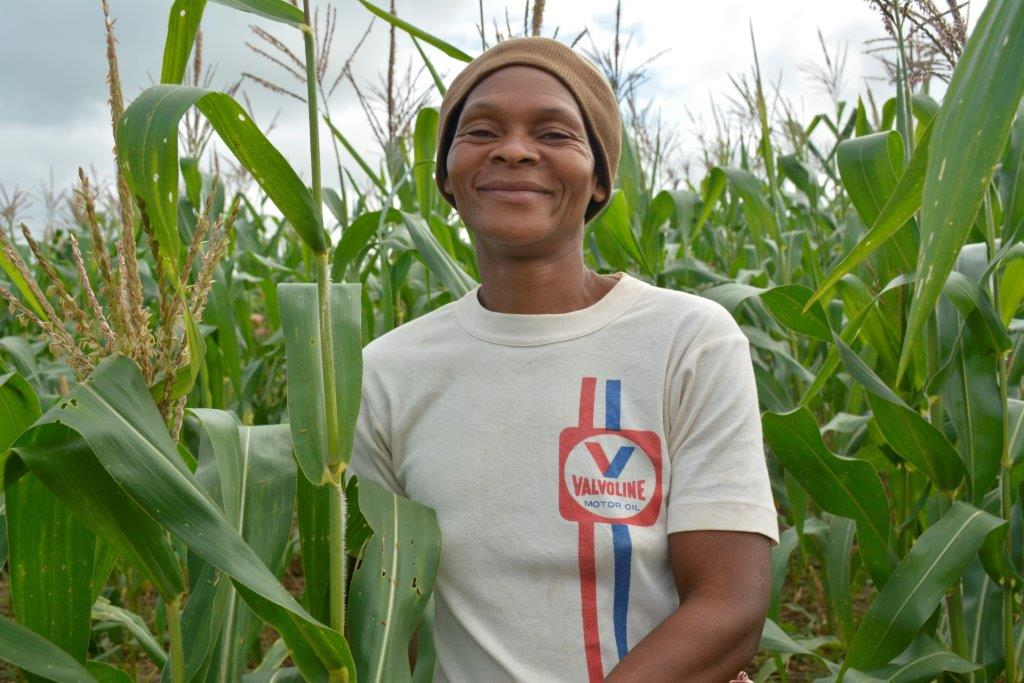
Smallholders benefit from sustainable intensification in Mozambique
Maize-legume cropping systems have found a niche market among rural Mozambican farmers, thanks to good agricultural practices made possible by the SIMLESA program in the Manica province of the country.
Cowpeas are becoming increasingly more reliable as both a food and cash crop in the province with both high nutritional content beneficial for household consumption and a strong local market demand. SIMLESA program is working with farmers to change the country’s reliance on monoculture by promoting crop diversification as part of its broader agricultural technical package. The practice calls for farmers to plant a variety of crops, including cowpeas. The approach is beginning to take hold, with program clients adopting it.
Maize-cow pea rotations are becoming increasingly more reliable as farmers increase their yield, and productivity. Under its Competitive Grant Scheme, SIMLESA is working with farmers to change the country’s reliance on monoculture by promoting crop diversification as part of its broader agricultural technical package. The practice calls for farmers to plant a variety of crops, including legumes such as cow peas. The approach is beginning to take hold, as program clients are adopting it.
Forty-nine year old Eugenia Lucas one of those farmers. Based in Chimoio district, Lucas farms with his husband and six children. For years, she grew only maize, using the conventional ridge and furrow planting method, but produced low yields. This practice also limits the country’s agricultural productivity and leaves farmers vulnerable to a variety of problems, including pests, market fluctuations, and the effects of global climate change. “Life was so difficult for me and my family as we struggled every year to get food on the table,” she said.
That changed in 2016 when Lucas became a SIMLESA lead farmer, with UCAMA, a SIMLESA partner. Through the SIMLESA program, UCAMA seeks to improve the quality of agricultural production through improved technology use, access to certified seeds and good quality and access to sustainable markets for agricultural produce. This is expected to enhance its organizational and institutional capacity at the provincial and district level as well as its field services’ technical capacity. The program is working in three districts of Gondola, Macate, and Vanduzi. The direct beneficiaries of the project are 100 lead farmers and 9, 000 smallholder farmers. Thirty thousand farmers will be exposed to program initiatives in Mozambique.
With program assistance, she began growing legumes, and cowpeas particularly. She grew cowpeas during the 2015/16 farming season. She accessed cowpea and maize seed and fertilizers. In the 2016/2017 farming season, she also grew maize and cow pea on her 0.5 hectare plot and expects to harvest one ton of maize per hectare.
This practice has led to dramatic increases in both productivity and income. As an additional benefit, Lucas has increased her farm’s resilience to climate change. Studies show that Mozambique will face longer and more intense droughts in future years. By optimizing her productivity, Lucas is adapting to changing weather patterns.
Cowpea, a drought-resilient crop will be one of the strategies to counter the negative effects of climate variability and change. The legume has several advantages such as gradual improvements in soil fertility, groundcover, feed for cattle and goats, nutrition through green leaves and, grain that can either be eaten or sold. The varieties developed and promoted by the SIMLESA program are well adapted to the environment and will help farmers to diversify the current cereal-based cropping systems.
Photo: Eugenia Lucas in her conservation-agriculture plot in Mozambique. Photo: Johnson Siamachira/CIMMYT.